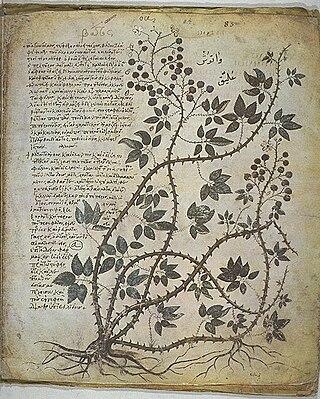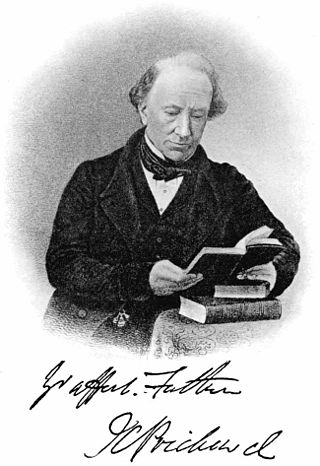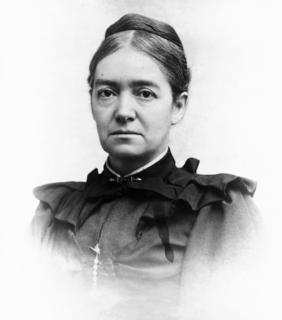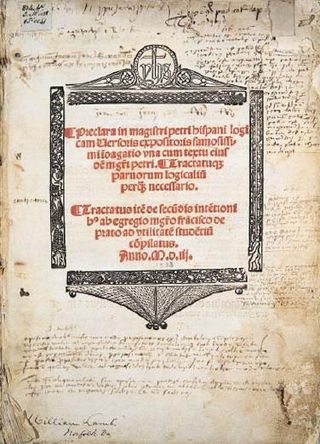Related Research Articles

Ferdinand de Saussure was a Swiss linguist, semiotician and philosopher. His ideas laid a foundation for many significant developments in both linguistics and semiotics in the 20th century. He is widely considered one of the founders of 20th-century linguistics and one of two major founders of semiotics, or semiology, as Saussure called it.

Louis Pasteur was a French chemist, pharmacist, and microbiologist renowned for his discoveries of the principles of vaccination, microbial fermentation, and pasteurization, the last of which was named after him. His research in chemistry led to remarkable breakthroughs in the understanding of the causes and preventions of diseases, which laid down the foundations of hygiene, public health and much of modern medicine. Pasteur's works are credited with saving millions of lives through the developments of vaccines for rabies and anthrax. He is regarded as one of the founders of modern bacteriology and has been honored as the "father of bacteriology" and the "father of microbiology".
Natural language processing (NLP) is an interdisciplinary subfield of computer science - specifically Artificial Intelligence - and linguistics. It is primarily concerned with providing computers the ability to process data encoded in natural language, typically collected in text corpora, using either rule-based, statistical or neural-based approaches of machine learning and deep learning.
A thesaurus, sometimes called a synonym dictionary or dictionary of synonyms, is a reference work which arranges words by their meanings, sometimes as a hierarchy of broader and narrower terms, sometimes simply as lists of synonyms and antonyms. They are often used by writers to help find the best word to express an idea:
...to find the word, or words, by which [an] idea may be most fitly and aptly expressed

Encyclopédie, ou dictionnaire raisonné des sciences, des arts et des métiers, better known as Encyclopédie, was a general encyclopedia published in France between 1751 and 1772, with later supplements, revised editions, and translations. It had many writers, known as the Encyclopédistes. It was edited by Denis Diderot and, until 1759, co-edited by Jean le Rond d'Alembert.

Christian Friedrich Samuel Hahnemann was a German physician, best known for creating the pseudoscientific system of alternative medicine called homeopathy.

Pedanius Dioscorides, "the father of pharmacognosy", was a Greek physician, pharmacologist, botanist, and author of De materia medica, a 5-volume Greek encyclopedia about herbal medicine and related medicinal substances, that was widely read for more than 1,500 years. For almost two millennia Dioscorides was regarded as the most prominent writer on plants and plant drugs.

Materia medica is a Latin term from the history of pharmacy for the body of collected knowledge about the therapeutic properties of any substance used for healing. The term derives from the title of a work by the Ancient Greek physician Pedanius Dioscorides in the 1st century AD, De materia medica, 'On medical material'.
Natural language generation (NLG) is a software process that produces natural language output. A widely-cited survey of NLG methods describes NLG as "the subfield of artificial intelligence and computational linguistics that is concerned with the construction of computer systems than can produce understandable texts in English or other human languages from some underlying non-linguistic representation of information".

Sugita Genpaku was a Japanese physician and scholar known for his translation of Kaitai Shinsho and a founder of Rangaku and Ranpō in Japan. He was one of the first Japanese scholars in Edo to study the Dutch language and is credited with being one of the first Japanese physicians to study Western medical teachings in Japan.

The Royal Society of Canada, also known as the Academies of Arts, Humanities, and Sciences of Canada, is the senior national, bilingual council of distinguished Canadian scholars, humanists, scientists, and artists. The primary objective of the RSC is to promote learning and research in the arts, the humanities, and the sciences. The RSC is Canada's national academy and exists to promote Canadian research and scholarly accomplishment in both official languages; to recognize academic and artistic excellence; and to advise governments, non-governmental organizations, and Canadians on matters of public interest.

James Cowles Prichard was a British physician and ethnologist with broad interests in physical anthropology and psychiatry. His influential Researches into the Physical History of Mankind touched upon the subject of evolution. From 1845, Prichard served as a Medical Commissioner in Lunacy. He also introduced the term "senile dementia".

Mary Corinna Putnam Jacobi was an English-American physician, teacher, scientist, writer, and suffragist. She was the first woman admitted to study medicine at the University of Paris and the first woman to graduate from a pharmacy college in the United States.

Peter of Hispania was the author of the Tractatus, later known as the Summulae Logicales, an important medieval university textbook on Aristotelian logic. As the Latin Hispania was considered to include the entire Iberian Peninsula, he is traditionally and usually identified with the medieval Portuguese scholar and ecclesiastic Peter Juliani, who was elected Pope John XXI in 1276. The identification is sometimes disputed, usually by Spanish authors, who claim the author of the Tractatus was a Castilian Blackfriar. He is also sometimes identified as Petrus Ferrandi Hispanus.

Marc Blank is an American game developer and software engineer. He is best known as part of the team that created one of the first commercially successful text adventure computer games, Zork. In 2009, he was chosen by IGN as one of the top 100 game creators of all time.
Literature of the 18th century refers to world literature produced during the years 1700–1799.

Programming language theory (PLT) is a branch of computer science that deals with the design, implementation, analysis, characterization, and classification of formal languages known as programming languages. Programming language theory is closely related to other fields including mathematics, software engineering, and linguistics. There are a number of academic conferences and journals in the area.

Wiley-Blackwell is an international scientific, technical, medical, and scholarly publishing business of John Wiley & Sons. It was formed by the merger of John Wiley & Sons Global Scientific, Technical, and Medical business with Blackwell Publishing in 2007.

The Cyranides is a compilation of magico-medical works in Greek first put together in the 4th century. Latin and Arabic translations also exists. It has been described as a "farrago" and a texte vivant, owing to the complexities of its transmission: it has been abridged, rearranged, and supplemented. The resulting compilation covers the magical properties and practical uses of gemstones, plants, and animals, and is a virtual encyclopedia of amulets; it also contains material pertinent to the history of western alchemy, and to New Testament studies, particularly in illuminating meanings of words and magico-religious practices. As a medical text, the Cyranides was held in relatively low esteem even in antiquity and the Middle Ages because of its use of vernacular language and reliance on lore rather than Hippocratic or Galenic medical theory.

The language of the court and government of the Ottoman Empire was Ottoman Turkish, but many other languages were in contemporary use in parts of the empire. The Ottomans had three influential languages, known as "Alsina-i Thalātha", that were common to Ottoman readers: Ottoman Turkish, Arabic and Persian. Turkish was spoken by the majority of the people in Anatolia and by the majority of Muslims of the Balkans except in Albania, Bosnia, and various Aegean Sea islands; Persian was initially a literary and high-court language used by the educated in the Ottoman Empire before being displaced by Ottoman Turkish; and Arabic, which was the legal and religious language of the empire, was also spoken regionally, mainly in Arabia, North Africa, Mesopotamia and the Levant.
References
- ↑ Morton, Leslie T. (1943). A Medical Bibliography; a check-list of texts illustrating the history of the medical sciences. London: Grafton.